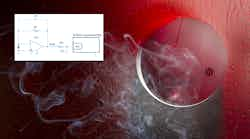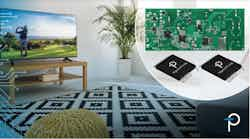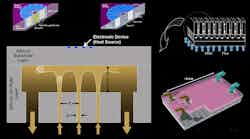Power modules offer many benefits. Versions with integrated inductors can simplify designs, reduce overall size, and help assure compliance with EMI standards. They let you leverage the module manufacturer’s expertise in system architecture, component selection, qualification, and sourcing, and they help cut design time and reduce PCB real-estate requirements. Moreover, when using a module, you needn’t spend time determining whether inductors and other passive components you choose will be able to withstand extended temperature ranges or repeated application of high voltages at high frequencies.
However, effective selection and application of power modules does require a basic understanding of several key concepts, includingEMI compliance, high-temperature storage (HTS) test, and inductor withstand voltage. HTS test is a method of ensuring power modules’ reliability, particularly those containing inductors with powdered-iron cores. Such inductors can experience thermal aging, with degradation most likely to occur at high voltages and switching frequencies.









